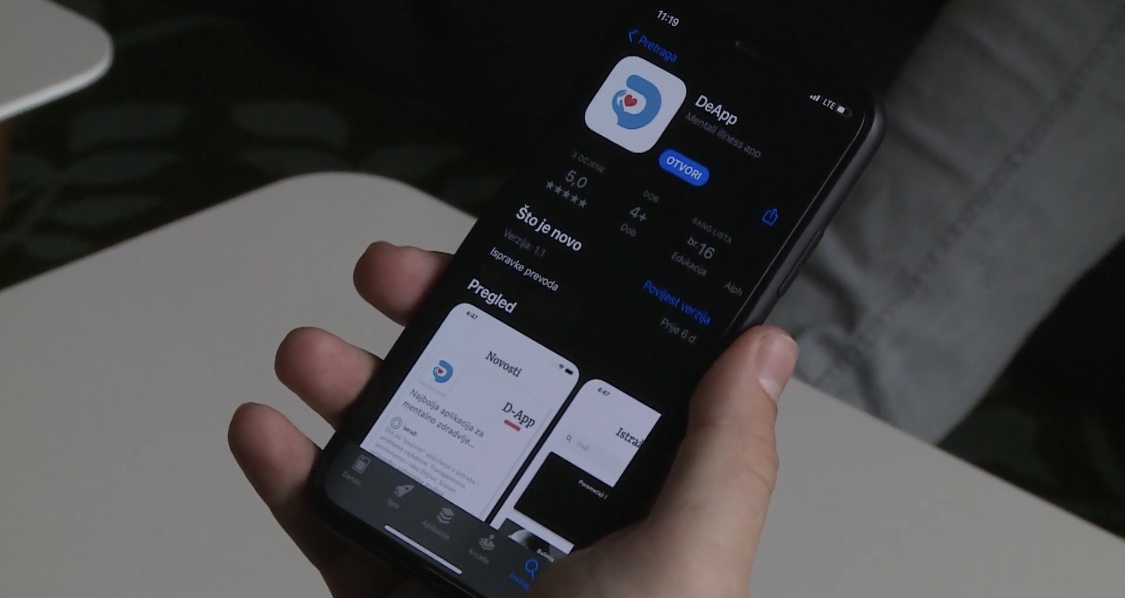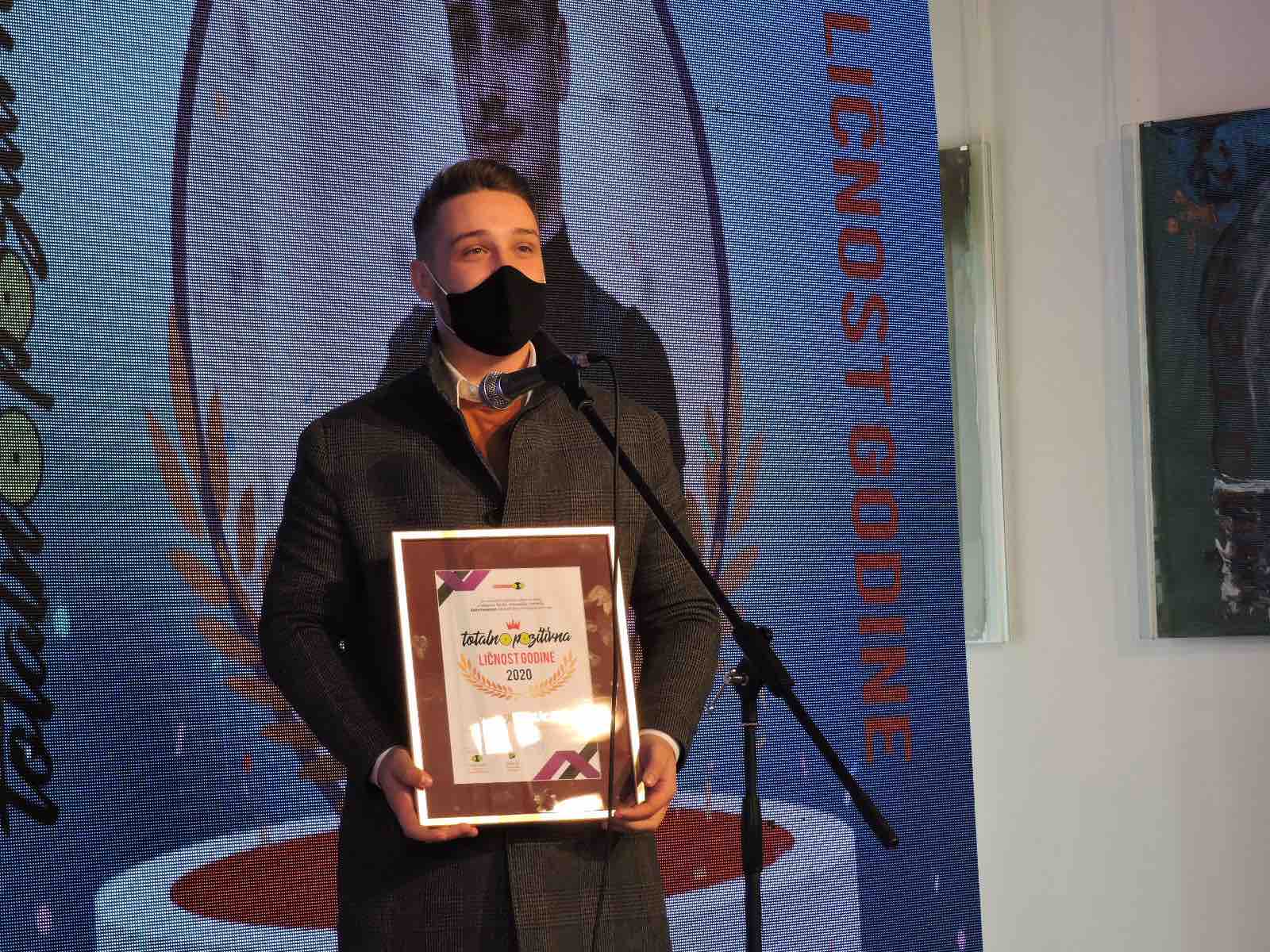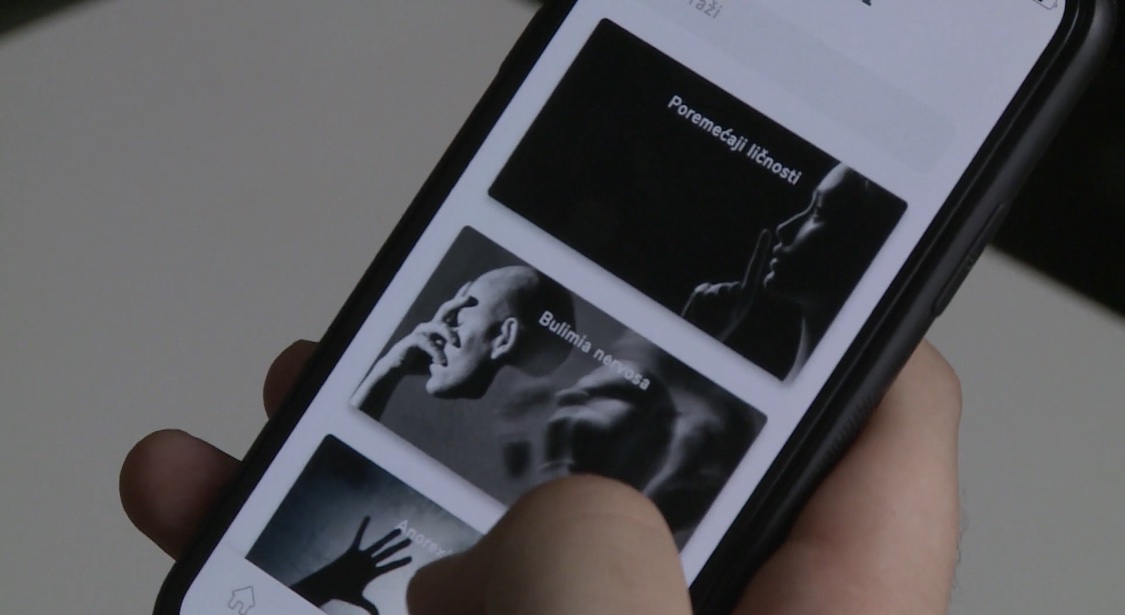
Twenty-one-year-old Kenan Suljić is one of the creators of the world’s first application to fight depression. The first-year student of the Faculty of Medicine in Tuzla is also a certified youth leader. In an interview for Balkan Diskurs, he reveals his perspective on mental health and how he managed to make his dream come true.
The old saying “knowledge is power” is true for Kenan Suljić. He is an activist, philanthropist, and lover of Bosnia and Herzegovina (BiH) and its people.
He says that he has a positive attitude. With constant hard works, he fosters his different self-identities. His favorite is to be a good and honest friend. Kenan is a fighter for justice and equality in everything, because he believes that only together can we create a better future.
Kenan is one of the creators of the first applications in the field of mental health, “D-App,” which fights depression.
“There are moments when we lose everything and cannot see outside of our four walls,” he says, explaining what it looks like for most people to face this disease.
Depression and anxiety are, as he says, states of fear and hopelessness when it seems like everything is disappearing and decaying and when we do not have someone to take our hand and pull us up.
“These are states and diseases when we often lie to ourselves and do not want to admit the truth. These are states in which we must be aware of the importance of an honest relationship, primarily with ourselves, moments where we need to know that we are never alone and that there is a way out of every difficult situation, a solution, and a better tomorrow. That is when it hurts the most, even though we do everything to make it better, seek help, and create a better situation,” explains Kenan.

What is D-App?
The ”D-App” for depression and mental illness is an innovative approach to treatment among health apps. The main goal is to provide professional, quality services to users and to combat the stigma in BiH of going to a psychologist.
“We all have feelings, emotions, and each of us hurts a lot. It often seems pointless and futile, but when a person gathers strength, admits to oneself where he/she is wrong and moves forward, he/she clearly sees the result of the struggle and an honest relationship [develops],” explains Kenan.
He is grateful that he did not go through difficult periods of depression and anxiety, but watching a friend and a complete stranger struggle with these problems and fears motivated him to start the app and give himself to others in need.
Statistics show that the app was needed in BiH. After seven days in operation, the number of users on the application was 700, with 150 realized requests between users and experts.
After 25 days of work, the number of users increased to 1,500 and 230 realized requests.
“The total number of users as of December 31, 2020 amounts to 2,125 users, of which 1800+ [are] active. And [there are] over 250 realized requests between users and experts. Also, today, after a few months break and construction of new parts of the application, we have more than 3,000 active users, and in June alone we have 400+ new users,” details Kenan.
Analytics in a story like this are one of the key indicators of Kenan’s success, something that cannot be explained with words.

The Struggle For A Better Bosnia and Herzegovina
This first-year student at the Medical Faculty in Tuzla, unlike most of his peers, dreams of staying in Bosnia and Herzegovina. He believes that Bosnia truly represents fertile ground for change, if young people are able to take advantage of it.
“If you are wondering if we have a Bosnian society living out of its comfort zone, we [do] have [it]. Proof of that is D-App, [with] more than 2,000 users in the first month and today, after all the changes, more than 3,000 active users and over 8,000 total sessions,” he says.
He believes that as a society we often make mistakes, mostly guided by those who do not work for the good of the people.
“They often call us by different names and place us in different groups. However, when we turn around, we have the opportunity to see the growth and development of society, a display of the desire and will of the little man to create an ideal environment conducive to a comfortable life,” he explains.
When asked if we live in a society that provides support, Kenan says that the presence of stigma is significant, as well as thinking “what will people say…”
“But it is encouraging when we see all the analysis, results and interest of the Bosnian society. The people need an opportunity. We are fed up with lies, deceptions, and stories that never come true. We are building an honest relationship and a path of mutual well-being, and the results will appear, we know [it]. We already have them!” he says.
The Key Is In Education
The education system in Bosnia and Herzegovina, he explains, faces huge problems and has had significant failures.
“We just pass by education. We don’t nurture it. There is visible inequality, injustice, and an approach that does not guarantee security for future academic citizens,” says Kenan.
The path of least resistance, corruption and crime, attract those are not getting what they deserve because their parents are not “someone important,” he says.
“A huge impact on mental health comes from every educational institution in Bosnia and Herzegovina, and it is up to us and those who make decisions to change this situation and make the education system the most important support to every young life in creating a life path,” he adds.
Family As The Biggest Support
A large number of accidents, he says, are caused by children’s misunderstandings.
“That is why we are here, to talk and point out to society the importance of mental health. To always be aware that the person next to us may need help and that we are the ones who have to react and show some level of humanity,” says Kenan.
In his opinion, Bosnian society is faced with a large number of those who degrade family and its importance in a child’s upbringing.
“There are simply periods of life that our parents do not teach us, but their presence always plays an important role in those moments. Giving love, attention, and commitment when a child makes plans on what he/she will strive for tomorrow has no price. Appreciate and respect parents, family, and what you have every day, because we know how important all this is in our lives only when we lose the ones we love,” he proudly states.
In his case, hard work is the key to his success, but gratitude for everything he has done goes to his family, his parents and brother.
“They are always here for me and are my biggest support, but at the same time my biggest critics,” Kenan adds.
He tells young people in Bosnia and Herzegovina that if they want the best for themselves and their society, they must take the most difficult step in life, and that is the struggle to create somewhat they will be remembered for.
“Let’s be responsible and aware of the fact that every change starts from each of us individually and ends in joint struggle and success,” he concludes.






